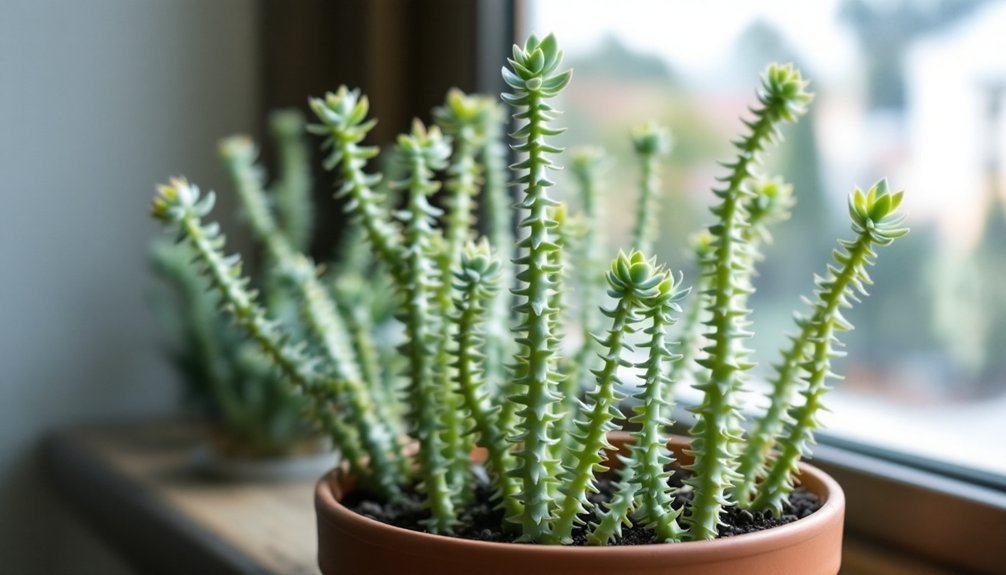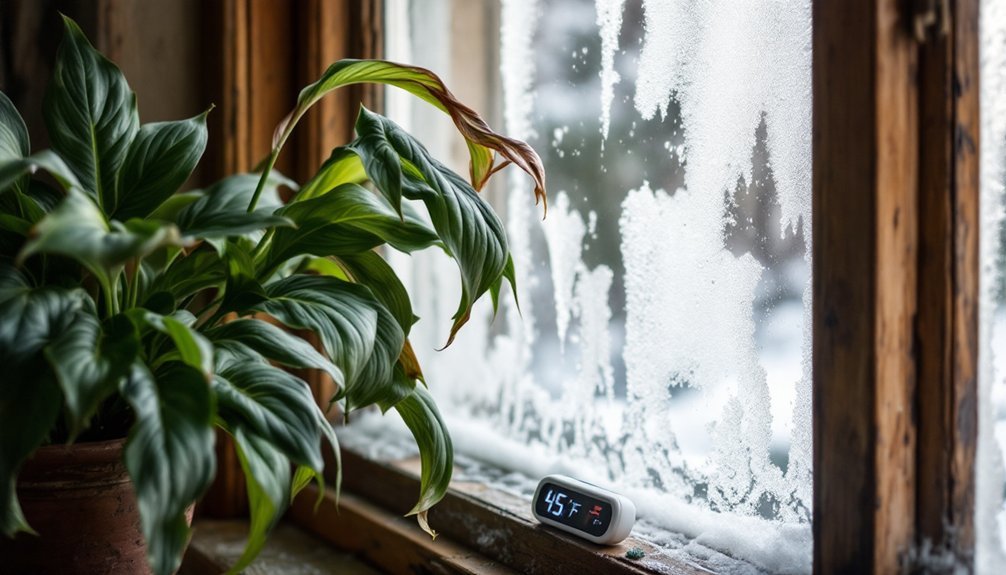You'll find ideal nighttime oxygen therapy with three top-rated concentrators: the whisper-quiet CAIRE Eclipse 5 running at just 40 decibels, the powerful Inogen At Home delivering up to 5 LPM continuous flow, and the ultra-reliable Drive DeVilbiss with 96% oxygen purity. Each unit offers customizable settings, safety alarms, and medical-grade compliance for your peace of mind. Discover how these advanced systems can transform your bedroom into a rejuvenating sanctuary.
Top-Rated Oxygen Concentrators for Nighttime Use

The five leading oxygen concentrators for nighttime use combine essential features like continuous flow delivery and quiet operation to enhance sleep quality.
You'll find superior performance in models like the CAIRE Eclipse 5, which runs at just 40 decibels – perfect for better sleep without disruptive noise.
For consistent nightly use, the Inogen At Home delivers reliable continuous flow up to 5 LPM, ideal if you're managing sleep apnea or similar conditions.
The Drive DeVilbiss offers high oxygen purity at 96%, ensuring you receive exceptional supplemental oxygen throughout the night.
For flexibility, portable oxygen concentrators like the Inogen One G5 provide customizable flow settings while weighing only 5.5 lbs.
These devices include safety features such as low-oxygen alarms and adjustable oxygen flow rates, giving you peace of mind during overnight use.
Features to Consider When Choosing a Bedroom Oxygen Generator
When selecting a bedroom oxygen generator, you'll need to evaluate several critical features that directly impact both performance and comfort during sleep.
Look for a concentrator with self-calibrating sensors that automatically monitor and adjust oxygen delivery to maintain ideal air quality. The best models offer real-time data reporting, allowing you to track oxygen saturation levels and barometric pressure continuously.
You'll want medical-grade oxygen generators that meet CDC, OSHA, and NFPA safety standards for reliable performance.
Consider customizable features that let you tailor oxygen flow to your specific needs. The most effective portable units are easy to install and adjust based on your room's requirements.
These features guarantee you're getting the right amount of oxygen while sleeping, making your oxygen generator more efficient and beneficial for your nighttime breathing needs.
Setting Up Your Bedroom Oxygen System for Optimal Results

Once you've selected an appropriate oxygen generator, proper setup becomes essential for achieving best sleep benefits. Your Home Concentrator should include sensors monitoring oxygen levels and air quality while maintaining ideal continuous flow for your oxygen needs. Confirm your medical device meets safety standards and can deliver 6-8 hours of oxygen therapy.
| Setup Component | Key Consideration |
|---|---|
| Sensor Placement | Monitor air quality and barometric pressure |
| Room Sealing | Maximize oxygen concentrators use |
| Controller Settings | Adjust levels of oxygen per occupancy |
| Noise Levels | Position unit for minimal sleep disruption |
To improve your quality of life and sleep better, you'll need real-time monitoring of oxygen delivery. Seal your bedroom properly to enhance system efficiency, and position sensors strategically for accurate readings. Remember to verify all safety compliance with CDC, OSHA, and NFPA guidelines before operation.
Frequently Asked Questions
Is It Good to Sleep With an Oxygen Concentrator?
Yes, if you've been prescribed oxygen therapy, sleeping with an oxygen concentrator can improve your oxygen levels, enhance sleep quality, reduce fatigue, and help manage respiratory conditions. It's safe when used as directed.
Can I Use Oxygen at Night Instead of CPAP?
You shouldn't replace CPAP with oxygen therapy without your doctor's approval. While oxygen can help breathing, it won't prevent airway collapse like CPAP does. Both treatments serve different purposes in sleep apnea management.
What Are the Side Effects of Using Oxygen at Night?
You may experience respiratory alkalosis, lightheadedness, nasal irritation, and tingling in your extremities. Long-term use can lead to oxygen toxicity, lung damage, and disrupted sleep if not properly monitored by healthcare professionals.
What Is the Difference Between an Oxygen Concentrator and an Oxygen Generator?
You'll find that oxygen concentrators filter ambient air for medical use, while oxygen generators create oxygen directly from air. Concentrators are typically stationary and medical-focused, while generators offer broader applications with advanced monitoring features.
In Summary
You'll find that a bedroom oxygen generator can greatly improve your sleep quality when you choose the right model and set it up correctly. Consider your room size, noise tolerance, and maintenance needs before making your selection. Once you've installed your system properly and established a nightly routine, you'll likely notice better rest and increased morning energy levels.





Leave a Reply